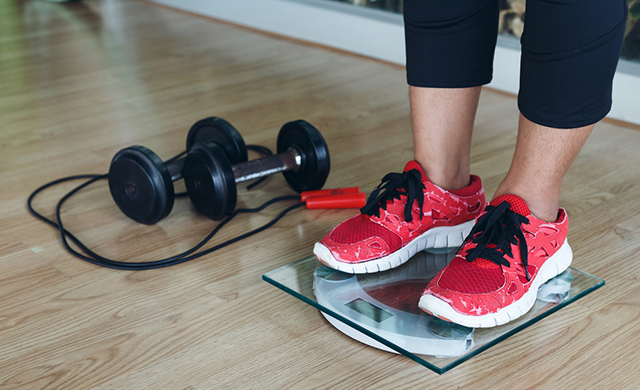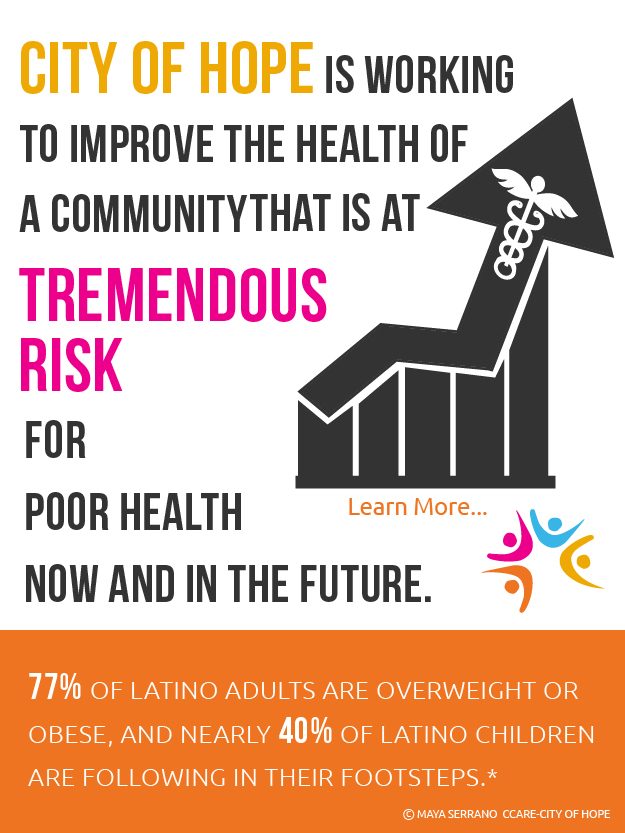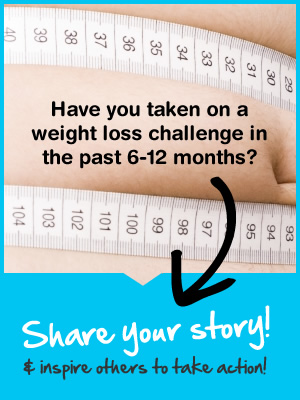
How to Lose Weight Faster, But Safely
06/04/2019 06:00AM | 8577 viewsby Jaclyn London, MS, RD, CDN
Lose 5 pounds in one week! It's a trope we see everywhere. And while it’s possible that someone can lose that much (if not more) in that time period, it really depends on your metabolism and loads of other factors, including physical activity and body composition, all of which are entirely unique to you.
Weight loss ultimately comes back to the concept of calories in, calories out: Eat less than you burn and you’ll lose weight. And while it’s possible to lose water weight quickly on a low-carb diet, I certainly wouldn’t advocate for it. The diet itself can trick you into thinking that this eating style is working — when really, you might gain back what you lost as soon as you eat carbs again. That can feel incredibly dispiriting if you want results that last longer than a week.
Based on my experience in nutrition counseling, most of us tend to snack on foods that aren’t nutrient-dense, but are high in calories. For example, skipping sugary beverages is often the easiest way to lose weight faster. You don’t feel full from drinks — even the ones that do contain calories — so swapping those out for sparkling water or unsweetened tea and coffee is the best place to start. Other major culprits often come in refined grains like cereals, chips, crackers, and cookies.
If you're looking to speed up weight loss, I'd also encourage you to be mindful of the foods you eat that you don't choose for yourself. Think: food pushers at work or your kids’ leftovers. Noticing where your extra calories actually come from is another step to making better choices in the short and long term.
In my experience, there are a few other tips that hold true for almost all of us across the board — and they’re concepts that we can put into practice beginning right now.
So, here’s where to start:
1. Eat more vegetables, all of the time.
It’s that simple, I promise! If you think about making any meal mostly veggies (at least 50% of anything that you’re having), you’re on the right track to better health and weight loss.
2. Build a better breakfast.
All meals are important, but breakfast is what helps you start your day on the right track. The best, heartiest breakfasts are ones that will fill you up, keep you satisfied, and stave off cravings later in the day. Aim to eat anywhere between 400 and 500 calories for your morning meal, and make sure you're including a source of lean protein plus filling fat (e.g., eggs, unsweetened Greek yogurt, nuts, or nut butters) and fiber (veggies, fruit, or 100% whole grains). Starting your day with a blood sugar-stabilizing blend of nutrients will help you slim down without sacrifice.
3. Know your limits with salt.
Since salt is a preservative, packaged and processed foods are often highest in sodium — something to keep in mind when planning your meals. When it comes by buying snacks, a "low sodium" product has to be 140 mg or less per serving — so if you're REALLY in a bind, you can follow that guideline for what to put in your cart.
4. Drink more coffee.
Start your day with a cup of joe. Caffeine is a natural diuretic and an excellent source of antioxidants, which protect your cells from damage. You can have up to 400 mg — about a venti Starbucks coffee — daily, according to the Dietary Guidelines for Americans.
Not much of a coffee drinker? Tea is also a natural diuretic, and types of herbal tea such as dandelion or fennel root can also lend a hand. In fact: When a recent study compared the metabolic effect of green tea (in extract) with that of a placebo, researchers found that the green-tea drinkers burned about 70 additional calories in a 24-hour period.
5. Skip sugary beverages.
We just don't feel full by liquid calories in quite the same way as we do real food. Drinking a juice or caramel coffee drink just isn't as satisfying as eating a bowl of veggie- and protein-packed stir-fry. So monitor your intake of juice, soda, sweetened coffee and tea, and alcoholic beverages. If you consume each of those beverages during the day, you'll have taken in at least 800 extra calories by nighttime — and you'll still be hungry. (Incidentally, alcohol may suppress the metabolism of fat, making it tougher for you to burn those calories.)
6. Buy a set of 5-pound weights.
It's a one-time investment you'll never regret. Here's why: Strength training builds lean muscle tissue, which burns more calories — at work or at rest — 24 hours a day, seven days a week. The more lean muscle you have, the faster you'll slim down. How do you start strength training? Try some push-ups or a few squats or lunges. Use your free weights to perform simple bicep curls or tricep pulls right in your home or office. Do these exercises three to four times per week, and you'll soon see a rapid improvement.
7. Eat spicy foods — seriously!
It can actually help you cut back on calories. That's because capsaicin, a compound found in jalapeño and cayenne peppers, may (slightly) increase your body's release of stress hormones such as adrenaline, which can speed up your ability to burn calories. What's more, eating hot peppers may help slow you down. You're less likely to wolfed down that plate of spicy spaghetti — and therefore stay more mindful of when you're full. Some great adds besides hot peppers: ginger and turmeric.
8. Go to bed.
There's tons of research that demonstrates getting less than the desired amount — about 7 hours — of sleep per night can slow down your metabolism. Plus, when you're awake for longer, you're naturally more likely to snack on midnight munchies. So don't skimp on your ZZZ's, and you'll be rewarded with an extra edge when it comes to losing weight.
9. Keep a food journal.
Loads of research demonstrates people who log everything they eat — especially those who log while they're eating — are more likely to lose weight and keep it off for the long haul. The habit also takes less than 15 minutes per day on average when you do it regularly, according to a 2019 study published in Obesity.
Start tracking on an app like MyFitnessPal or use a regular notebook. It'll help you stay accountable for what you've eaten. Plus, you can easily identify some other areas of your daily eats that could use a little improvement when it's written out in front of you.
10. Take a walk!
Don't get me wrong — exercising at any time is good for you. But evening activity may be particularly beneficial because many people's metabolism slows down toward the end of the day. Thirty minutes of aerobic activity before dinner increases your metabolic rate and may keep it elevated for another two or three hours, even after you've stopped moving. Plus, it'll help you relax post-meal so you won't be tempted by stress-induced grazing that can rack up calories.
11. Resist the urge to skip a meal.
Skipping meals will not make you lose weight faster. If a hectic day makes a sit-down meal impossible, stash a piece of fruit and pack of nut butter in your car or purse and keep snacks in your office desk drawer — anything that will keep you from going hungry!
Going long periods of time without food does double-duty harm on our healthy eating efforts by both slowing down your metabolism, and priming you for another binge later in the day. (Think: You've skipped breakfast and lunch, so you're ready to takedown a whole turkey by dinner!) Make it your mission to eat three meals and two snacks every day, and don't wait longer than three to four hours without eating. Set a "snack alarm" on your phone if needed.
12. Eat your H2O.
Sure, you certainly need to drink plenty of water to help combat bloating, you can (and should!) also consume high-water content foods. Reach for cucumbers, tomatoes, watermelon, asparagus, grapes, celery, artichokes, pineapple, and cranberries — all of which contain diuretic properties that will also help you stay full due to their higher fiber content.
13. Munch on mineral-rich foods.
Potassium, magnesium, and calcium can help to serve as a counter-balance for sodium. Foods that are rich in potassium include leafy greens, most "orange" foods (oranges, sweet potatoes, carrots, melon), bananas, tomatoes, and cruciferous veggies — especially cauliflower. Low-fat dairy, plus nuts, and seeds can also help give you a bloat-busting boost. They've also been linked to a whole host of additional health benefits, such as lowering blood pressure, controlling blood sugar, and reducing risk of chronic disease overall.
14. Ignore the gimmicks.
At any given time, there are dozens of weight-loss hypes in the marketplace that claim to take off 10 pounds in 10 days, or whatever. Desperation can tempt us to try anything — from "clean eating" to cutting out food groupsentirely. Keep in mind: Just because an avocado-kale-salad dripping in coconut oil is deemed "clean" by a so-called "expert" on your Instagram feed does not make it an unlimited food. Moral of the story? Avoid fads, eat real food, watch some Netflix, and unwind (perhaps with a glass of wine in hand). Now that's my kind of detox.
15. Let yourself off the hook.
You already know that a perfect diet doesn't exist, but many of us still can't resist the urge to kick ourselves when we indulge, eat too much, or get thrown off course from restrictive diets. The problem: This only makes it more difficult, stressful, and downright impossible to lose weight. So rather than beating yourself up for eating foods you think you shouldn't, let it go. Treating yourself to about 200 calories worth of deliciousness each day — something that feels indulgent to you — can help you stay on track for the long haul, so allow yourself to eat, breathe, and indulge. Food should be joyful, not agonizing!
16. Look for our emblem on food labels.
Ultimately, long-term weight loss requires some short-term behavior change and healthier habit formation. That's why we created our Good Housekeeping Nutritionist Approved Emblem, which exists to help turn smart food choices into healthier eating habits. All GHNA foods and drinks make it easier to find — and eat — good-for-you foods without additional time, effort, and cost. We target the lifestyle-related factors that make healthier eating hard, and find simple but creative solutions that actually work! Look for the emblem on labels wherever you shop for food.
***
Jaclyn London, MS, RD, CDN, Good Housekeeping Institute Director, Nutrition Lab A registered dietitian with a Bachelor of Arts degree from Northwestern University and a Master of Science degree in Clinical Nutrition from New York University, Jaclyn “Jackie” London handles all of Good Housekeeping’s nutrition-related content, testing, and evaluation.












Post your Comment
Please login or sign up to comment
Comments